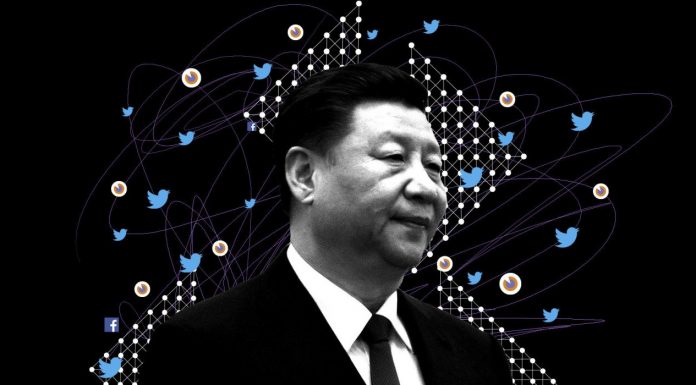(Associated Press) China’s ruling Communist Party has opened a new front in its long, ambitious war to shape global public opinion: Western social media.
Liu Xiaoming, who recently stepped down as China’s ambassador to the United Kingdom, is one of the party’s most successful foot soldiers on this evolving online battlefield.
He joined Twitter in October 2019, as scores of Chinese diplomats surged onto Twitter and Facebook, which are both banned in China.
Since then, Liu has deftly elevated his public profile, gaining a following of more than 119,000 as he transformed himself into an exemplar of China’s new sharp-edged “wolf warrior” diplomacy, a term borrowed from the title of a top-grossing Chinese action movie.
“As I see it, there are so-called ‘wolf warriors’ because there are ‘wolfs’ in the world and you need warriors to fight them,” Liu, who is now China’s Special Representative on Korean Peninsula Affairs, tweeted in February.
His stream of posts—principled and gutsy ripostes to Western anti-Chinese bias to his fans, aggressive bombast to his detractors—were retweeted more than 43,000 times from June through February alone.
But much of the popular support Liu and many of his colleagues seem to enjoy on Twitter has, in fact, been manufactured.
A seven-month investigation by the Associated Press and the Oxford Internet Institute, a department at Oxford University, found that China’s rise on Twitter has been powered by an army of fake accounts.
They have retweeted Chinese diplomats and state media tens of thousands of times, covertly amplifying propaganda that can reach hundreds of millions of people—often without disclosing the fact that the content is government-sponsored.
This type of analysis is possible because Twitter makes more of its data available to researchers than other social-media platforms routinely do.
More than half the retweets Liu got from June through January came from accounts that Twitter has suspended for violating the platform’s rules, which prohibit manipulation.
Overall, more than one in 10 of the retweets 189 Chinese diplomats got in that time frame came from accounts that Twitter had suspended by Mar. 1.
But Twitter’s suspensions did not stop the pro-China amplification machine.
An additional cluster of fake accounts, many of them impersonating U.K. citizens, continued to push Chinese government content, racking up over 16,000 retweets and replies before Twitter kicked them off late last month and early this month, in response to the AP and Oxford Internet Institute’s investigation.
Full article available here.

